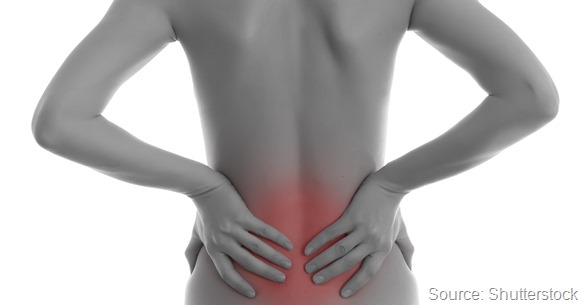Episodes of lower back pain are not triggered by changes in weather conditions, say Australian researchers.
In a study of almost 1000 patients, no connection was found between the onset of lower back pain and changes in temperature, humidity, air pressure, wind direction or precipitation. A small link existed between increased wind speed and the onset of lower back pain, but the association was not significant.
“Many patients believe that weather impacts their pain symptoms,” says lead author Daniel Steffens from the University of Sydney, Australia. “However, there are few robust studies investigating weather and pain, specifically research that does not rely on patient recall of the weather.”

For the current study, Steffens and colleagues conducted a case-crossover analysis of 993 patients who visited their primary care clinics due to the onset of low back pain over a 13 month period between 2011 and 2012. The team also obtained weather data form the Australian Bureau of Meteorology that included information on temperature, relative humidity, wind speed, wind gusts, wind direction, air pressure and precipitation. This data was used to assess changes in weather over the 48-hour period prior to each patient’s reported onset of back pain. This was then compared with the weather conditions one week and one month prior to the patients’ back pain starting.
As reported in Arthritis Care & Research, no link was found between the onset of patients’ back pain and the various weather conditions that were analysed.
“Our findings refute previously held beliefs that certain common weather conditions increase the risk of lower back pain,” conclude Steffens and colleagues.
However, the researchers do say further studies should be carried out into the effects of weather conditions on chronic pain conditions such as fibromyalgia, rheumatoid arthritis and osteoarthritis.
According to the World Health Organization, almost all individuals experience lower back pain at some point in their lives, with the problem affecting up to a third of the world’s population at any one time.